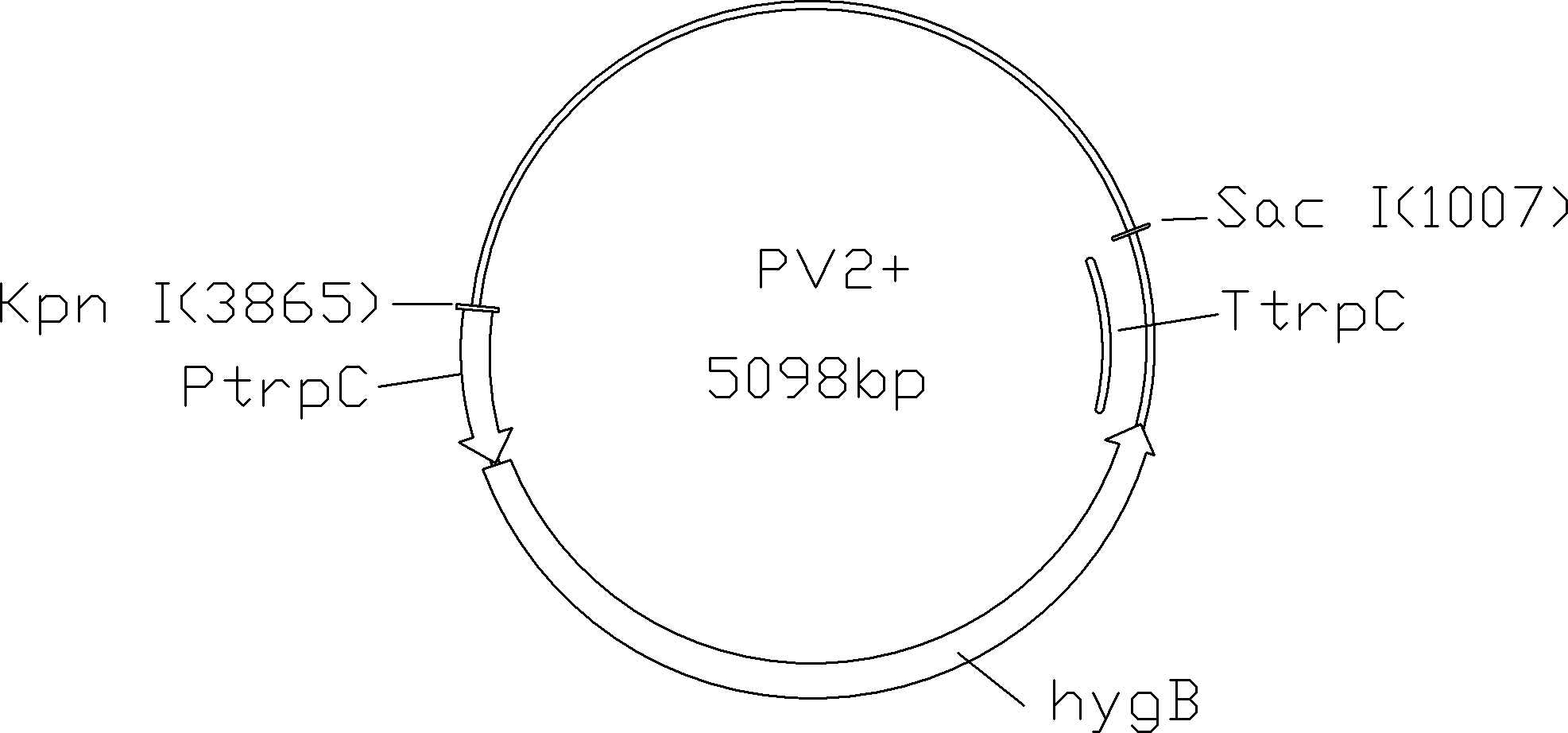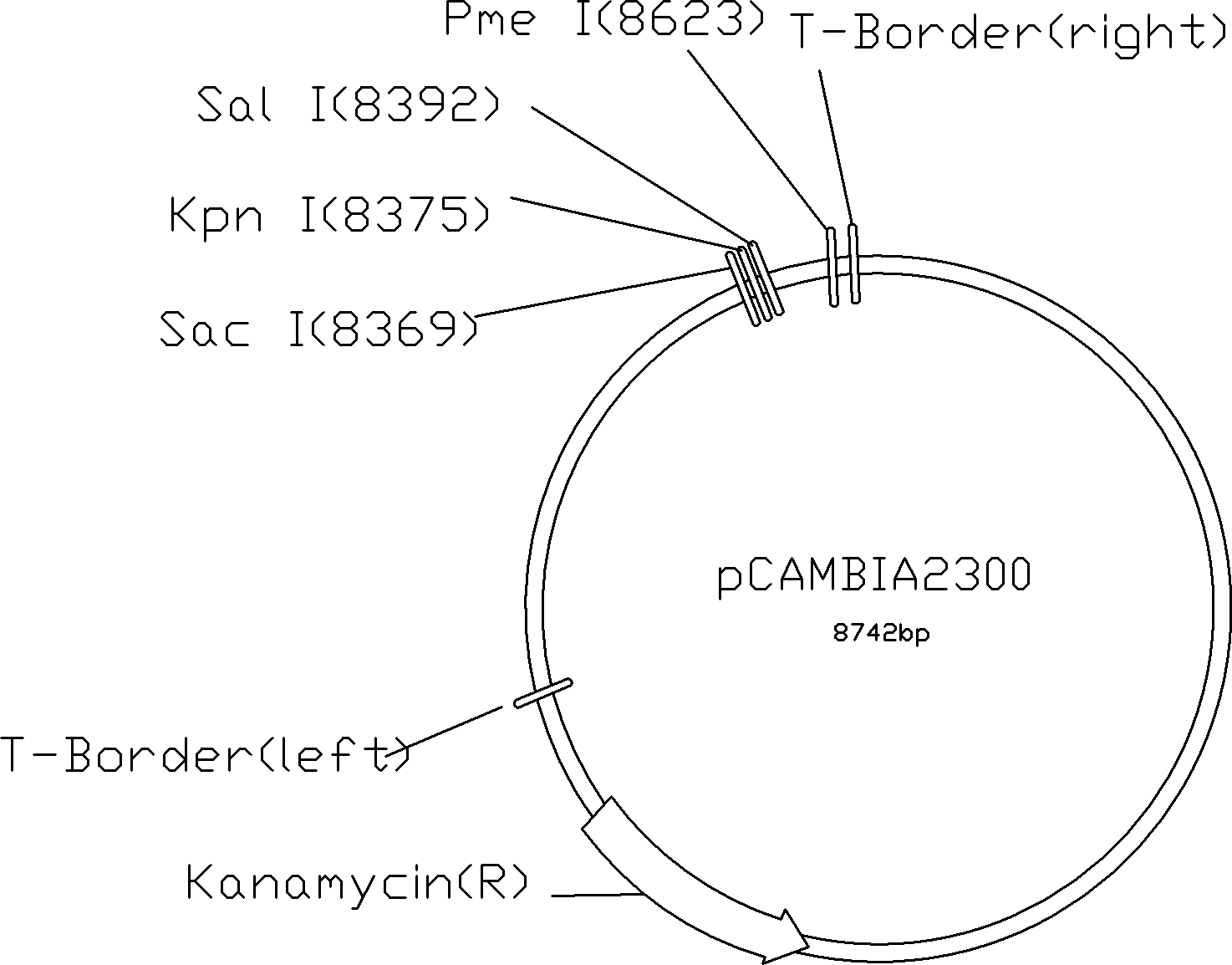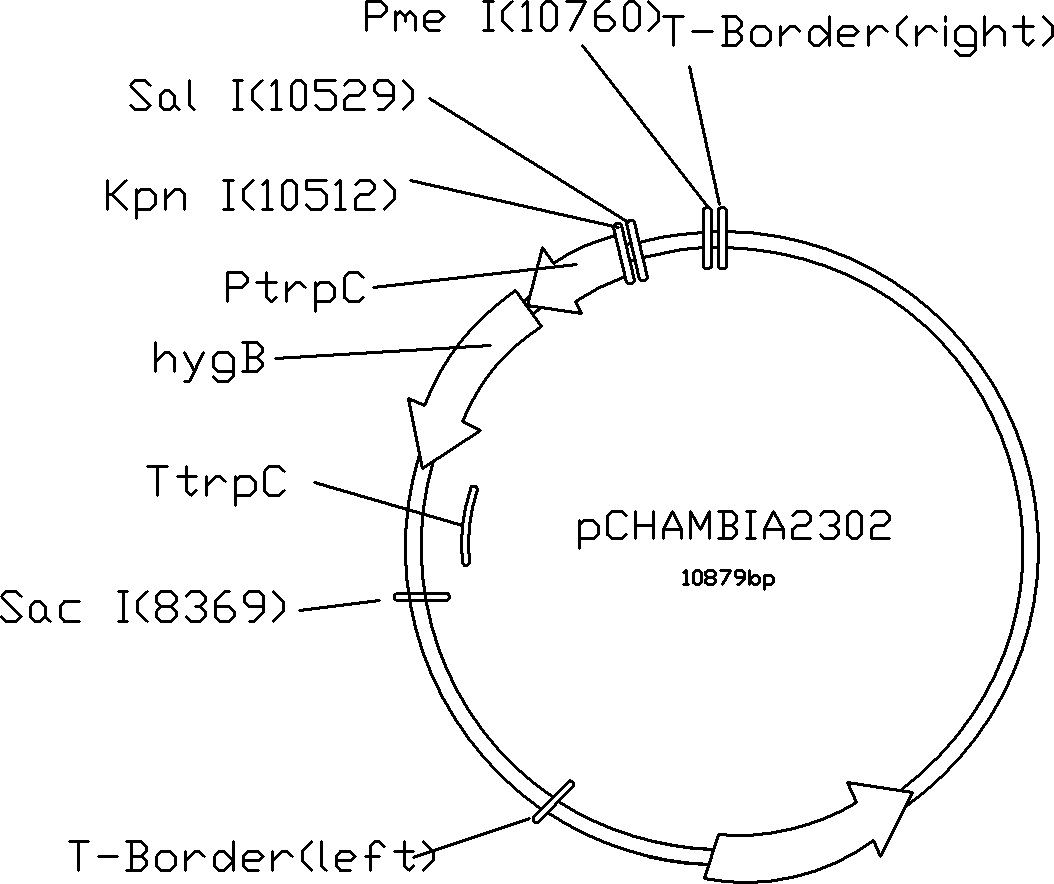Method for obtaining strain capable of expressing lipase effectively
A high-efficiency expression and lipase technology, applied in the field of genetic engineering, can solve problems such as unclear, unclear and limited
- Summary
- Abstract
- Description
- Claims
- Application Information
AI Technical Summary
Problems solved by technology
Method used
Image
Examples
Embodiment 1
[0063] Embodiment 1, the construction of overexpression vector
[0064] Take the following steps:
[0065] (1) utilize restriction endonuclease Sac I, Kpn I to hygromycin resistance expression cassette from plasmid PV2 + Enzymatic cleavage (such as figure 1 shown), the fragment was recovered by gel, and cloned into the pCAMBIA2300 plasmid (such as figure 2 Shown), the recombinant plasmid pCHAMBIA2302 with hygromycin resistance was obtained (such as image 3 shown); the hygromycin expression cassette can also be derived from any other DNA containing this sequence or directly synthesized, and the plasmid used to construct the PEL gene overexpression vector can also be expressed in filamentous fungi such as pCAMBIA1300 except for pCAMBIA2300 , pCAMBIA3300 and other pCAMBIA series vectors and pHB vectors;
[0066] (2) According to the sequence design primer (forward primer: TG) of the lipase gene PEL (AF330635) of Penicillium expanded ACTAGT ATGTTGTTCAACTACCAATCTTT The und...
Embodiment 2
[0073] Embodiment two, the acquisition of Penicillium genetically engineered bacteria
[0074] The activity of described Penicillium genetically engineered bacterium comprises the steps:
[0075] (1) Pick the isolated and purified wild-type Penicillium and inoculate it on a PDA plate, cultivate it at 28°C for about 20 days, and wash the mature spores with sterile water;
[0076] (2) Inoculate the engineered Agrobacterium EHA105 containing the final vector pCHAMBIA2302::PgpdA-PEL-TtrpC in Example 1 in the LB liquid medium containing streptomycin and kanamycin (both 100 μg / ml) at 28°C, Cultivate overnight at 200 rpm, reactivate with MM medium containing streptomycin and kanamycin (both 100 μg / ml), and culture at 220 rpm for 48 hours at 28°C. Take an appropriate amount of culture and centrifuge at 5000rpm to remove the supernatant, wash with 1M liquid medium, and finally dilute to OD600=0.15 with 1M liquid medium, then cultivate at 28°C and 220rpm for 6-8 hours until OD600=0.5- ...
Embodiment 3
[0084] Embodiment 3, comparative experiment of producing lipase ability
[0085] Randomly select the Penicillium genetically engineered bacterium that example 2 gained is inoculated on the PDA medium, insert in the seed culture medium 50mL respectively after cultivating 10 days, at 28 ℃, 210rpm shaker culture 24h, then transfer to respectively with 10% inoculum amount Fermentation medium (30mL fermentation medium in 250mL Erlenmeyer flask) was fermented at 28°C and 210rpm for 48h; then the fermentation broth was centrifuged, and the supernatant was taken for lipase activity detection.
[0086] The lipase activity was detected by acid-base titration.
[0087] step:
[0088] Take 20 100mL Erlenmeyer flasks, add 4.0mL Gly-NaOH buffer solution with pH 9.4 and 5.0mL olive oil emulsion respectively; put them into a oscillating constant temperature water bath at 36°C to preheat for 5 minutes. After filtering the enzyme solution, use 0.05 mol / L Gly-NaOH buffer solution with pH9.4 wa...
PUM
 Login to View More
Login to View More Abstract
Description
Claims
Application Information
 Login to View More
Login to View More - R&D
- Intellectual Property
- Life Sciences
- Materials
- Tech Scout
- Unparalleled Data Quality
- Higher Quality Content
- 60% Fewer Hallucinations
Browse by: Latest US Patents, China's latest patents, Technical Efficacy Thesaurus, Application Domain, Technology Topic, Popular Technical Reports.
© 2025 PatSnap. All rights reserved.Legal|Privacy policy|Modern Slavery Act Transparency Statement|Sitemap|About US| Contact US: help@patsnap.com



